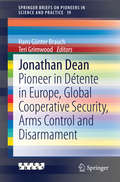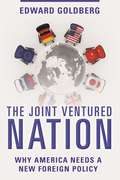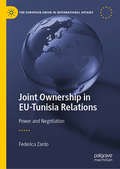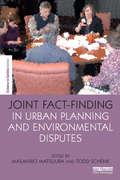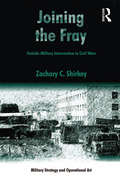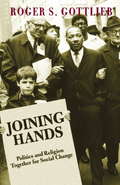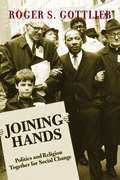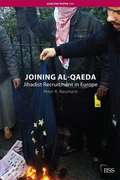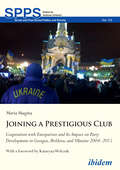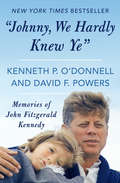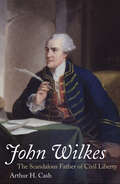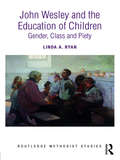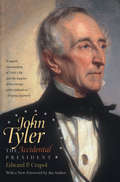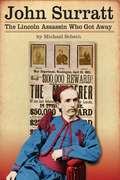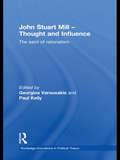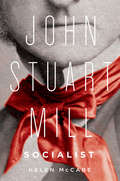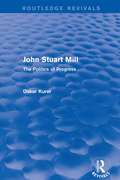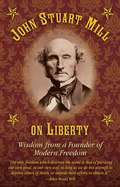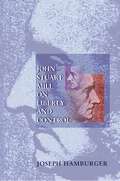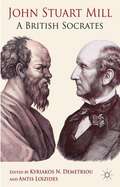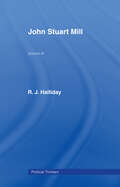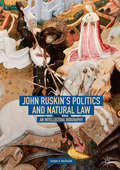- Table View
- List View
Jonathan Dean
by Hans Günter Brauch Teri GrimwoodJonathan Dean (1924-2014) was a distinguished U. S. diplomat (1950-1980) and from 1984 to 2007 global security adviser to the Union of Concerned Scientists, Washington, D. C. During the 1980s and 1990s he was a pioneering conceptual thinker, writer and speaker on détente in Europe, global cooperative security, arms control and disarmament. He authored: Watershed in Europe (1987), Meeting Gorbachev's Challenge (1989) and Ending Europe's Wars (1994). This volume contains his biography and bibliography, six texts on détente and arms control in Europe in the 1980s: Beyond First Use; MBFR; Alternative Defence; Berlin; A Crisis Management Center; Conventional Arms Control in Europe and six texts on the new security order in Europe since the 1990s: Components of a Post-Cold War Security System for Europe; Constraining Technological Weapons Innovation; NATO Enlargement: Act II; Ten Years after the Wall; Future Security in Space; Rethinking Security: Return to the Grotean Pattern.
Jointly Optimal Monetary and Fiscal Policy Rules under Borrowing Constraints
by Huixin Bi Michael KumhofA report from the International Monetary Fund.
The Joint Ventured Nation: Why America Needs a New Foreign Policy
by Edward GoldbergMoving America from the Troubled Superpower to the Indispensable PartnerWhat a ride the world has been on over the last thirty years: the fall of the Berlin Wall, China's reemergence as a major power, the wishful creation of the BRICS, technological innovations, 9/11, conflicts in Iraq, Afghanistan, and Syria, terrorism, the market crash of 2008, the Arab Spring, the Eurozone crisis, America's reemergence as an energy giant, and the rebirth of czarist Russia. The most important change, though-and the key to America's future-is globalization.Globalization has made America less independent. Our fate is now interconnected to other major industrial countries, yet our foreign policy has not adapted to this reality. In today's world, the term "ally" is becoming rapidly irrelevant. The United Kingdom is an old ally of America, but as a result of economic codependencies, China is now much more important to the United States. Instead of thinking in terms of allies, think of US policy regarding other twenty-first-century nations as a set of concurrent joint venture agreements.In The Joint Ventured Nation, author Edward Goldberg argues that American foreign policy is too focused on a world that no longer exists, one in which political power is measured by military strength or fervent ideology. He details how our fate is now intertwined with our economic partners, and looks at how we should deal with states such as Russia and the various Middle Eastern nations that refuse to join the globalized world. Most importantly, he shows how America can remain first among equals in a joint ventured world.
Joint Ownership in EU-Tunisia Relations: Power and Negotiation (The European Union in International Affairs)
by Federica ZardoThis book provides an in-depth analysis of EU-Tunisia negotiations during the last three decades to understand what ‘joint ownership’ means in Euro-Mediterranean relations. The principle of joint ownership often figures in the EU’s public discourse of the EU and other international actors. Yet, it has been scarcely conceptualised and there is little research on which factors determine its presence or lack thereof. The book contributes to its definition, highlighting its evolving nature and intersubjective dimension. The author further explains how bargaining rules, practices, and procedures affect joint ownership by constraining or empowering actors, and shaping their expectations about which options they perceive are possible during the negotiations. Negotiation analysis proves useful for showing how, and to what extent, the interests of both sides eventually feature in Euro-Mediterranean agreements and enables scholars to bring back third countries' agency and perceptions into the study of the EU's external relations.
Joint Fact-Finding in Urban Planning and Environmental Disputes (The Earthscan Science in Society Series)
by Masahiro Matsuura and Todd SchenkThe days of rationalist scientific management and deference to official data are behind us. The credibility of experts and the information they provide are regularly challenged; officials are routinely provided with conflicting sets of facts as they plan and make decisions; and decision makers and stakeholders alike are largely skeptical that technical information will adequately account for the various interests and concerns and lead to the right outcomes. They struggle to reconcile technical information with other forms of knowledge, and differing interests, priorities and perspectives. Issues like climate change are complicating matters even further, as scientists and technicians must increasingly acknowledge the uncertainty and potential fallibility of their findings, and highlight the dynamic nature of the systems they are explaining. This book examines how groups looking to plan and make decisions in any number of areas can wade through the imperfect and often contradictory information they have to make fair, efficient, wise and well-informed choices. It introduces an emerging and very promising approach called joint fact-finding (JFF). Rather than each stakeholder group marshaling the set of facts that best advance their respective interests and perspectives while discrediting the contradictory facts others provide, groups are challenged to collaboratively generate shared sets of facts that all parties accept. This book introduces readers to the theory of JFF, the value it can provide, and how they can adopt this approach in practice. It brings together writings from leading practitioners and scholars from around the world that are at the forefront of the JFF approach to science intensive policymaking, urban planning, and environmental dispute resolution. The first set of chapters outlines the concept of JFF, and situates it within other bodies of theory and practice. The second set of case-based chapters elucidates how JFF is being applied in practice. This book delivers a new perspective to scholars in the field of public policy, urban planning, environmental studies, and science and technology studies, as well as public officials, technical experts, policy consultants, and professional facilitators.
Joining the Fray: Outside Military Intervention in Civil Wars (Military Strategy and Operational Art)
by Zachary C. ShirkeyNational leaders often worry that civil wars might spread, but also seem to have little grasp on which civil wars will in fact draw in other states. An ability to understand which civil wars are most likely to draw in outside powers and when this is likely to happen has important policy implications as well as simply answering a scholarly question. Joining the Fray takes existing explanations about which outside states are likely to intervene militarily in civil wars and adds to them explanations about when states join and why. Building on his earlier volume, Is this a Private Fight or Can Anybody Join?, Zachary C. Shirkey looks at how the decision to join a civil war can be intuitively understood as follows: given that remaining neutral was wise when a war began something must change in order for a country to change its beliefs about the benefits of fighting and join the war. This book studies what these changes are, focusing in particular on revealed information and commitment problems.
Joining Hands
by Roger S. GottliebDid Martin Luther King's spiritual understanding of political struggle truly help the Civil Rights movement? Can breast cancer victims incorporate both spiritual wisdom and political action in their fight for life? Confronting questions that challenge the foundations of both politics and spirituality, Roger S. Gottlieb presents a brave new account of how religious ethics and progressive movements share a common vision of a transformed world. In doing so, he offers a bold and eloquent affirmation: that authentic religion requires an activist, transforming presence in the political world, and that the moral and psychological insights of religion are indispensable resources in political struggles for democracy, human rights and ecological sanity. With original and compelling interpretations of Martin Luther King and the civil rights struggle, feminism, disability rights, the global environmental movement, and the fight for breast cancer, Joining Hands will alter the way spiritual seekers, political activists, and society as a whole think about the political role of religion and the spiritual component of politics.
Joining Hands: Politics And Religion Together For Social Change
by Roger S. GottliebDid Martin Luther King's spiritual understanding of political struggle truly help the Civil Rights movement? Can breast cancer victims incorporate both spiritual wisdom and political action in their fight for life? Confronting questions that challenge the foundations of both politics and spirituality, Roger S. Gottlieb presents a brave new account
Joining Empire
by Jerome KlassenA fresh assessment of the neoliberal political economy behind Canadian foreign policy from Afghanistan to Haiti, Joining Empire establishes Jerome Klassen as one of the most astute analysts of contemporary Canadian foreign policy and its relationship to US global power. Using empirical data on production, trade, investment, profits, and foreign ownership in Canada, as well as a new analysis of the overlap among the boards of directors of the top 250 firms in Canada and the top 500 firms worldwide, Klassen argues that it is the increasing integration of Canadian businesses into the global economy that drives Canada's new, increasingly aggressive, foreign policy.Using government documents, think tank studies, media reports, and interviews with business leaders from across Canada, Klassen outlines recent systematic changes in Canadian diplomatic and military policy and connects them with the rise of a new transnational capitalist class. Joining Empire is sure to become a classic of Canadian political economy.
Joining al-Qaeda: Jihadist Recruitment in Europe (Adelphi series)
by Peter R. NeumannIn Britain alone, several thousand young Muslims are thought to be part of violent extremist networks. How did they become involved? What are the mechanisms and dynamics through which European Muslims join al-Qaeda and groups inspired by al-Qaeda? This paper explains the processes whereby European Muslims are recruited into the Islamist militant movement. It reveals that although overt recruitment has been driven underground, prisons and other ‘places of vulnerability’ are increasingly important alternatives. It explores the recruitment roles of radical imams, gateway organisations and activists, and highlights the kinds of message that facilitate the recruitment process. It also shows how the Internet has come to play an increasingly significant role. Neumann argues that there is little evidence of systematic, top-down jihadist recruitment in Europe. Rather, the activist leaders of cells increasingly drive the process. The paper explores possible options for European governments wishing to disrupt violent extremist networks, recognising that it will also be necessary to address some of the underlying risk factors that fuel jihadist recruitment. Ultimately, the major challenge for European states lies in constructing more inclusive societies in which the narratives of exclusion and grievance will not resonate to the benefit of recruiters to the extremist cause.
Joining a Prestigious Club: Cooperation with Europarties and Its Impact on Party Development in Georgia, Moldova, and Ukraine 2004–2015 (Soviet and Post-Soviet Politics and Society #172)
by Maria ShaginaBrussels's idea of a "wider Europe" implies that Europeanization is not limited to EU member states. The EU can, so it claims, also exert influence beyond its borders. One of the channels of external EU influence is cooperation between Europarties and parties outside the Union. Through mutual visits and joint activities, non-EU parties become internationally socialized, that is, exposed to the Europarties' norms as well as values, and experience the rules as well as practices that shape European party-building. What are the incentives for Europarties and non-EU parties to cooperate with each other? What kind of, and how much, impact did cooperation have on party development in post-Soviet Georgia, Moldova, and Ukraine?Based on eighty interviews with party officials, international donors and academics, Maria Shagina outlines the set of motivations that trigger cooperation between Europarties and non-EU parties, analyzes the impact of cooperation on party ideology, organizational structure, and interparty behavior in Georgia, Moldova, and Ukraine, and explores the implications of this cooperation on the standardization, consolidation, and democratization of the non-EU party systems. Her findings shed light on how prestige and domestic factors impede the penetration of EU norms and values in the non-EU party structures, and point to the failures of Europarties to adequately address problems of party-development in Eastern Europe. The book reveals the ways in which cooperation with Europarties has paradoxically contributed to the ossification of the status quo and impaired the development as well as the consolidation of democracy in the three Eastern Partnership states.
"Johnny, We Hardly Knew Ye": Memories of John Fitzgerald Kennedy
by Kenneth P. O'Donnell David F. PowersThis classic New York Times bestseller is an illuminating portrait of JFK—from his thrilling rise to his tragic fall—by two of the men who knew him best. As a politician, John Fitzgerald Kennedy crafted a persona that fascinated and inspired millions—and left an outsize legacy in the wake of his murder on November 22, 1963. But only a select few were privy to the complicated man behind the Camelot image. Two such confidants were Kenneth P. O&’Donnell, Kennedy&’s top political aide, and David F. Powers, a special assistant in the White House. They were among the president&’s closest friends, part of an exclusive inner circle that came to be known as the &“Irish Mafia.&” In Johnny, We Hardly Knew Ye, O&’Donnell and Powers share memories of Kennedy, his extraordinary political career, and his iconic family—memories that could come only from intimate access to the man himself. As they recount the full scope of Kennedy&’s journey—from his charismatic first campaign for Congress to his rapid rise to national standing, culminating on that haunting day in Dallas—O&’Donnell and Powers lay bare the inner workings of a leader who is cherished and mourned to this day, in a memoir that spent over five months on the New York Times bestseller list.
John Wilkes: The Scandalous Father of Civil Liberty
by Arthur H. CashPulitzer Prize Finalist: A biography of the wildly colorful eighteenth-century British politician who became &“the toast of American revolutionaries&” (Booklist). One of the most colorful figures in English political history, John Wilkes (1726–97) is remembered as the father of the British free press, a defender of civil and political liberties—and a hero to American colonists. Wilkes&’s political career was rancorous, involving duels, imprisonments in the Tower of London, and the Massacre of St. George&’s Fields, in which seven of his supporters were shot to death by government troops. He was equally famous for his &“private&” life—as a confessed libertine, a member of the notorious Hellfire Club, and the author of what has been called the dirtiest poem in the English language. This lively biography draws a full portrait of John Wilkes from his childhood days through his heyday as a journalist and agitator, his defiance of government prosecutions for libel and obscenity, his fight against exclusion from Parliament, and his service as lord mayor of London on the eve of the American Revolution. Told here with the force and immediacy of a firsthand newspaper account, Wilkes&’s own remarkable story is inseparable from the larger story of modern civil liberties and how they came to fruition. &“[Does] justice to Wilkes both as a fiery proponent of individual rights and as . . . a libertine par excellence in an age with no shortage of memorable rakes.&” —The New York Times &“It is difficult to believe that John Wilkes, a notorious womanizer and scandal-monger, was a genuine hero of civil liberties and political democracy on both sides of the Atlantic in the late 18th century, but hero he was and in this engaging book Arthur Cash gives Wilkes the serious treatment he has long deserved.&” —Eric Foner, Winner of the Pulitzer Prize in History and New York Times–bestselling author of Reconstruction
John Wesley and the Education of Children: Gender, Class and Piety (Routledge Methodist Studies Series)
by Linda A. RyanScholars have historically associated John Wesley’s educational endeavours with the boarding school he established at Kingswood, near Bristol, in 1746. However, his educational endeavours extended well beyond that single institution, even to non-Methodist educational programmes. This book sets out Wesley’s thinking and practice concerning child-rearing and education, particularly in relation to gender and class, in its broader eighteenth-century social and cultural context. Drawing on writings from Churchmen, Dissenters, economists, philosophers and reformers as well as educationalists, this study demonstrates that the political, religious and ideological backdrop to Wesley’s work was neither static nor consistent. It also highlights Wesley’s eighteenth-century fellow Evangelicals including Lady Huntingdon, John Fletcher, Hannah More and Robert Raikes to demonstrate whether Wesley’s thinking and practice around schooling was in any way unique. This study sheds light on how Wesley’s attitudes to education were influencing and influenced by the society in which he lived and worked. As such, it will be of great interest to academics with an interest in Methodism, education and eighteenth-century attitudes towards gender and class.
John Tyler, the Accidental President
by Edward P. CrapolThe first vice president to become president on the death of the incumbent, John Tyler (1790-1862) was derided by critics as "His Accidency." In this biography of the tenth president, Edward P. Crapol challenges depictions of Tyler as a die-hard advocate of states' rights, limited government, and a strict interpretation of the Constitution. Instead, he argues, Tyler manipulated the Constitution to increase the executive power of the presidency. Crapol also highlights Tyler's faith in America's national destiny and his belief that boundless territorial expansion would preserve the Union as a slaveholding republic. When Tyler sided with the Confederacy in 1861, he was branded as America's "traitor" president for having betrayed the republic he once led.
John Tyler: Tenth President Of The United States
by Lucille Falkof Richard G. YoungPresents the life of John Tyler, including his childhood, education, employment, and political career.
John Surratt: The Licoln Assassin Who Got Away
by Michael ScheinWho was JOHN SURRATT? A pitiless assassin who hid while his mother was hanged for his crime? A Southern patriot falsely accused of Lincoln's murder? This is the last untold story of the Lincoln assassination - an impeccably researched page-turning account of the Confederate spy who was Booth's closest associate prior to the assassination; the man who carried orders from Richmond to Washington, then got away with the crime of the century. Get ready for a thrilling ride through a treacherous conspiracy and a spectacular worldwide flight from Ford's Theatre to the Vatican in Rome, Italy where Surratt managed to hide under an alias as a Papal Zouave. You will be hot on the trail of the forgotten conspirator who may be the missing link between Jefferson Davis and Lincoln's death. Your ride will take you with Surratt, back to America and to a courtroom in Rockville, Maryland to witness the trial that captured the attention of the nation. One hundred fifty years in the making, this is the one history book you can't put down..
John Stuart Mill - Thought and Influence: The Saint of Rationalism (Routledge Innovations in Political Theory)
by Georgios VarouxakisMore than two hundred years after his birth, and 150 years after the publication of his most famous essay On Liberty, John Stuart Mill remains one of the towering intellectual figures of the Western tradition. This book combines an up-to-date assessment of the philosophical legacy of Mill’s arguments, his complex version of liberalism and his account of the relationship between character and ethical and political commitment. Bringing together key international and interdisciplinary scholars, including Martha Nussbaum and Peter Singer, this book combines the latest insights of Mill scholarship with a long-term appraisal of the ways in which Mill’s work has been received and interpreted from the time of his death in 1873 to today. The book offers compelling insights into Mill’s posthumous fate and reputation; his youthful political and intellectual activism; his views on the formation of character; the development of his thought on logic; his differences from his father and Bentham; his astonishingly prescient, environmentally sensitive and ‘green’ thought; his relation to virtue ethics; his conception of higher pleasures and its relation to his understanding of justice; his feminist thought and its place in contemporary debates and feminist discourses; his defence of free speech and its fundamental significance for his liberalism; and his continued contemporary relevance on a number of major issues. This book will be of interest to students and scholars of Politics, Political Theory, Philosophy, History, English, Psychology, and also Cultural Studies, Empire studies, nationalism and ethnicity studies.
John Stuart Mill, Socialist
by Helen McCabeBest known as the author of On Liberty, John Stuart Mill remains a canonical figure in liberalism today. Yet according to his autobiography, by the mid-1840s he placed himself "under the general designation of Socialist." Taking this self-description seriously, John Stuart Mill, Socialist reinterprets Mill's work in its light.Helen McCabe explores the nineteenth-century political economist's core commitments to egalitarianism, social justice, social harmony, and a socialist utopia of cooperation, fairness, and human flourishing. Uncovering Mill's changing relationship with the radicalism of his youth and his excitement about the revolutionary events of 1848, McCabe argues that he saw liberal reforms as solutions to contemporary problems, while socialism was the path to a better future. In so doing, she casts new light on his political theory, including his theory of social progress; his support for democracy; his feminism; his concept of utility; his understanding of individuality; and his account of "the permanent interests of man as a progressive being," which is so central to his famous harm principle.As we look to rebuild the world in the wake of financial crises, climate change, and a global pandemic, John Stuart Mill, Socialist offers a radical rereading of the philosopher and a fresh perspective on contemporary meanings of socialism.
John Stuart Mill (Routledge Revivals): The Politics of Progress
by Oskar KurerFirst published in 1991, this book attempts to deal with Mill’s thought as a coherent system and tie some elements of his thoughts together. It seeks to show that he developed a set of ethical principles to underlie government intervention and provide a theory as to how it should intervene — which he then applied to practical politics. The first chapters deal with Mill’s doctrine of improvement and what impact the improvement of man has on the social organisation of society. The third chapter deals with Mill’s theory of economic development. The second part of the book deals with policy issues such as the question of the optimal constitution and Mill’s policy proposals for England.
John Stuart Mill on Tyranny and Liberty: Wisdom from a Founder of Modern Freedom
by Joseph HealyThe United States was founded on the importance of civil liberties--protections for the individual against the control of others, whether those are other people or the government. Freedom for each person is a cornerstone of Western society.<P><P> John Stuart Mill's thoughts on liberty and the concept of freedom are among the most important frameworks on which we've built so much of modern society; our very ideas of limited government and personal freedom are rooted in the writings of this great political philosopher. John Stuart Mill on Liberty is a collection of some of the most important of his statements on the ideas of liberty and freedom. This book showcases his firm belief that each person should have the right to live as he or she wants to, so long as it does not harm anyone else. Much of what we now take for granted or still fight to maintain or advance, such as freedom of speech, the abolition of slavery, and the rights of women, are things Mill argued for. As you read his passionate entreaties for liberty, you'll be amazed at how relevant and important they remain today. "In this age, the mere example of non-conformity, the mere refusal to bend the knee to custom, is itself a service. " --John Stuart Mill
John Stuart Mill on Liberty and Control
by Joseph HamburgerJohn Stuart Mill is one of the hallowed figures of the liberal tradition, revered for his defense of liberal principles and expansive personal liberty. By examining Mill's arguments in On Liberty in light of his other writings, however, Joseph Hamburger reveals a Mill very different from the "saint of rationalism" so central to liberal thought. He shows that Mill, far from being an advocate of a maximum degree of liberty, was an advocate of liberty and control--indeed a degree of control ultimately incompatible with liberal ideals. Hamburger offers this powerful challenge to conventional scholarship by presenting Mill's views on liberty in the context of his ideas about, in particular, religion and historical development. The book draws on the whole range of Mill's philosophical writings and on his correspondence with, among others, Harriet Taylor Mill, Auguste Comte, and Alexander Bain to show that Mill's underlying goal was to replace the traditional religious basis of society with a form of secular religion that would rest on moral authority, individual restraint, and social control. Hamburger argues that Mill was not self-contradictory in thus championing both control and liberty. Rather, liberty and control worked together in Mill's thought as part of a balanced, coherent program of social and moral reform that was neither liberal nor authoritarian. Based on a lifetime's study of nineteenth-century political thought, this clearly written and forcefully argued book is a major reinterpretation of Mill's ideas and intellectual legacy.
John Stuart Mill
by Kyriakos N. Demetriou Antis LoizidesThis edited collection highlights the inquisitive and synthetic aspects of John Stuart Mill's mode of philosophising while exploring various aspects of Mill's thought, intellectual development and influence. The contributors to this volume discuss a number of Mill's ideas including those on political participation, democracy, liberty and justice.
John Stuart Mill
by R J Halliday R. J. HallidayFirst published in 1976, this volume offers a significant new interpretation of Mill's political thought, Mill's ambivalent attitude to democracy is carefully examined. The implications for modern democracy of Mill's views on consensus and leadership, bureaucracy and participation, equality and liberty emerge from a deep understanding of Mill's place in 19th century ideas.
John Ruskin's Politics and Natural Law: An Intellectual History
by Graham A. MacDonaldThis book offers new perspectives on the origins and development of John Ruskin’s political thought. Graham A. MacDonald traces the influence of late medieval and pre-Enlightenment thought in Ruskin’s writing, reintroducing readers to Ruskin’s politics as shaped through his engagement with concepts of natural law, legal rights, labour and welfare organization. From Ruskin’s youthful studies of geology and chemistry to his back-to-the-land project, the Guild of St. George, he emerges as a complex political thinker, a reformer—and what we would recognize today as an environmentalist. John Ruskin’s Politics and Natural Law is a nuanced reappraisal of neglected areas of Ruskin’s thought.
